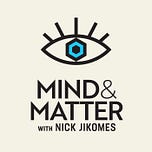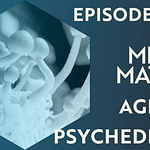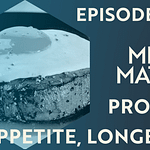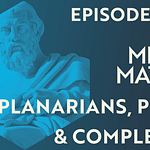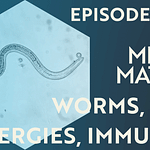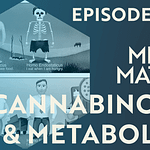Wide release date: July 18, 2025
Episode Summary: Dr. Eugene Chang talks about the microbiome’s role as a vital organ, the impacts of antibiotics and Western diets on microbial health, and strategies for restoring a damaged microbiome through diet and fecal microbial transplants. They delve into microbiome dysbiosis, its links to modern diseases, and Chang’s research on personalized microbiome interventions.
About the guest: Eugene Chang, MD is a physician-scientist and Professor of Medicine at the University of Chicago, specializing in gastroenterology. His research focuses on the gut microbiome as a vital organ influencing metabolic and immune health.
Discussion Points:
The gut microbiome is a vital organ, acquired early in life, that supports metabolic and immune functions, but can be disrupted by antibiotics, leading to diseases like C. difficile colitis.
Western diets, high in saturated fats and low in fiber, contribute to microbiome dysbiosis, linked to modern conditions like inflammatory bowel diseases, obesity, and allergies.
Microbiome health is better assessed by functional markers (e.g., short-chain fatty acid production) than taxonomic diversity, as diversity varies widely among healthy individuals.
A patient with severe food intolerance due to antibiotic-induced microbiome damage was treated over 50 weeks with a tailored diet, restoring healthy microbiome function.
Different dietary fibers (e.g., beans vs. seaweed) are metabolized at varying rates, affecting gut health; fermented foods like kefir can bypass digestion issues.
Diet can rapidly reshape the microbiome within 24-48 hours, but severe dysbiosis may require microbial transplants if key microbes are extinct.
Chang’s research shows a high-fiber, low-fat diet outperforms fecal microbial transplants in restoring microbiome resilience in mice post-antibiotics.
Future microbiome medicine may involve personalized “omni microbial transplants” targeting both small and large intestines for comprehensive restoration.
Related episode:
M&M 203: Metagenomics, Microbiome Transmission, Gut Microbiome in Health & Disease | Nicola Segata
*Not medical advice.
Full video version: [YouTube]
Support M&M if you find value in this content.
Episode transcript below.
Episode Chapters:
00:00:00 Intro
00:01:22 Guest Introduction & Microbiome Overview
00:07:29 Antibiotics & Microbiome Health
00:12:27 Defining Dysbiosis & Microbiome Functions
00:19:39 Functional Markers & Microbiome Testing
00:25:48 Case Study: Antibiotic-Induced Gut Issues
00:33:20 Dietary Fiber Types & Gut Health
00:41:54 Western Diets & Microbiome Damage
00:49:52 Microbiome Resilience & Recovery
00:56:55 Fecal Microbial Transplants & Future Therapies
01:04:14 Diet-Driven Microbiome Changes
01:12:10 Current Research & Future Directions
01:22:51 Closing Thoughts & Gut-Brain Axis
Full AI-generated transcript below. Beware of typos & mistranslations!
Listen to this episode with a 7-day free trial
Subscribe to Mind & Matter to listen to this post and get 7 days of free access to the full post archives.


